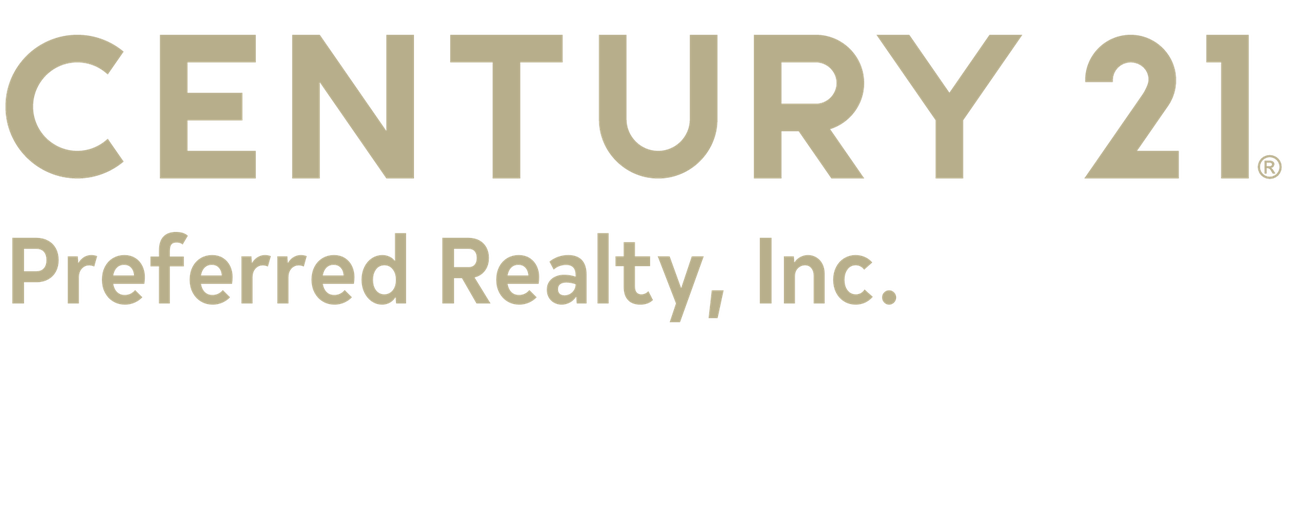Creating a Winning Culture: Retaining Top Real Estate Talent

Here are five strategies for building a positive and productive work environment that encourages agent retention in a real estate brokerage:
1. Clear Communication Channels:
– Establish open and transparent communication channels within the brokerage. This includes regular team meetings, one-on-one check-ins, and accessible platforms for agents to ask questions or voice concerns.
– Provide clear guidelines on expectations, goals, and performance metrics. This helps agents understand their role and how they contribute to the brokerage’s success.
2. Professional Development Opportunities:
– Offer ongoing training and professional development programs for agents. This can include workshops, seminars, and access to industry experts.
– Encourage agents to pursue relevant certifications or designations, and provide support for their educational endeavors.
3. Recognition and Rewards:
– Recognize and celebrate achievements, both big and small. Acknowledge top-performing agents, and implement incentive programs to motivate and reward consistent high performance.
– Show appreciation for agents’ efforts through gestures like bonuses, awards, or public recognition.
4. Supportive Team Culture:
– Foster a collaborative and supportive team culture where agents feel valued and respected. Encourage teamwork, knowledge-sharing, and mutual assistance.
– Organize team-building activities and events to strengthen camaraderie and build lasting professional relationships.
5. Work-Life Balance:
– Promote a healthy work-life balance by offering flexible scheduling options and reasonable workload expectations.
– Provide resources for stress management, wellness initiatives, and support for personal and professional development outside of work.
Remember to adapt these strategies to the specific needs and preferences of your brokerage and agents. Creating a positive and productive work environment requires ongoing effort and a commitment to the well-being and success of your team.
Mastering the Interview Process: Hiring the Right Real Estate Professional
Hiring the right real estate professionals is a critical step in building a successful brokerage. The interview process plays a pivotal role in ensuring that you bring on board individuals who not only have the requisite skills but also align with your brokerage’s values and vision. In this article, we will delve into the strategies and techniques to master the interview process for hiring the right real estate professionals.
1. Define Your Ideal Candidate Profile
Before conducting interviews, it’s crucial to have a clear understanding of the traits and qualifications you’re seeking. Consider the skills, experience, and cultural fit that would best compliment your brokerage’s objection.
2. Conduct Thorough Pre-Screening
Begin the process by conducting pre-screening assessments. This could involve reviewing resumes, portfolios, and conducting initial phone or video interviews. Look for red flags and ensure that candidates meet the basic qualifications.

3. Create a Structured Interview Format
Establish a structured interview format that allows you to systematically assess candidates. This could include a mix of behavioral, situational, and technical questions tailored to the real estate industry.
4. Behavioral Interviewing Techniques
Behavioral questions aim to uncover how candidates have reacted in specific situations in the past. For example, “Can you share an experience where you successfully navigated a challenging negotiation with a client?”
5. Situational Interview Questions
Present candidates with hypothetical scenarios they might encounter in their role. Ask how they would approach these situations, demonstrating their problem-solving skills and industry knowledge.
6. Assess Cultural Fit
Gauge whether the candidate’s values align with those of your brokerage. Inquire about their work preferences, communication style, and how they handle teamwork and collaboration.
7. Evaluate Soft Skills
Real estate professionals require a mix of soft skills such as communication, negotiation, and relationship-building. Probe for examples of how candidates have applied these skills in their previous roles.
8. Allow for Candidate Questions
Encourage candidates to ask questions about your brokerage, its culture, and expectations. This not only provides valuable insights into their interests but also shows their level of preparation.
9. Consider a Panel Interview
In some cases, involving multiple team members in the interview process can offer diverse perspectives and help ensure a well-rounded evaluation.
10. Provide a Realistic Job Preview
Offer a realistic preview of the role, including its challenges and opportunities. This transparency helps candidates make informed decisions about their fit within your brokerage.
Conclusion
Mastering the interview process is a pivotal skill in hiring the right real estate professionals. By adopting a structured and comprehensive approach, you can assess candidates objectively and ensure they align with your brokerage’s goals and values. Remember, a well-chosen team can be a cornerstone of your brokerage’s long-term success.
Embracing Technology and Attracting Tech-Savvy Real Estate Professionals

Technology plays a crucial role in modern real estate, revolutionizing how agents operate and enhancing the overall client experience. Here are some key points on the role of technology and how it can be a competitive advantage for agents:
1. Market Research and Data Analysis:
Technology provides access to extensive market data, allowing agents to make informed decisions regarding pricing, market trends, and property valuations. Advanced analytics tools help agents understand and interpret this data for strategic planning.
2. Digital Marketing and Listing Exposure:
Online platforms and social media have become powerful tools for marketing properties. Agents can leverage these channels to reach a wider audience and showcase listings through high-quality photos, virtual tours, and engaging content.

3. Virtual Tours and 3D Visualization:
Virtual tours and 3D visualization technologies offer potential buyers a detailed and immersive experience of a property without physically visiting it. This not only saves time but also attracts out-of-town or international buyers.
4. Customer Relationship Management (CRM) Systems:
CRM systems help agents manage client interactions, track leads, and streamline communication. Automation features enable personalized follow-ups, improving client retention and satisfaction.
5. Transaction Management Platforms:
Digital transaction management platforms streamline the paperwork process, reducing manual administrative tasks. This leads to quicker closings and a more efficient workflow.
6. AI and Predictive Analytics:
Artificial intelligence and predictive analytics tools can analyze large datasets to identify potential leads, predict market trends, and offer personalized recommendations to clients.
7. Paperless Transactions:
digital transaction management platforms to streamline the paperwork process, resulting in faster, more efficient closings.
All these technologies aim to attract agents to the brokerage with the tools and resources they need to deliver exceptional service and achieve success in today’s dynamic real estate market. This commitment to innovation is a positive approach in maintaining a competitive edge in the industry.
The Art of Finding and Nurturing Top Real Estate Talent
In the dynamic world of real estate, success is often a team effort. The ability to identify and cultivate top talent can significantly impact a brokerage’s growth and reputation. In this article, we will explore the strategies and principles behind the art of finding and nurturing top real estate professionals.
1. Identifying Potential Stars
Finding the right talent begins with a keen eye for potential. Look beyond resumes and consider qualities like passion, adaptability, and a strong work ethic. Attend industry events, networking functions, and utilize online platforms to connect with aspiring real estate professionals.
2. Cultural Fit Matters
Beyond skills, it’s crucial to assess cultural fit. Seek individuals who align with the values and mission of your brokerage. This ensures a harmonious work environment and helps maintain a positive and motivated team.

3. Nurturing Growth through Mentorship
Once talented individuals are identified, the nurturing process begins. Providing mentorship and guidance can significantly accelerate their growth. Share your knowledge, experiences, and insights, and encourage them to learn from both successes and challenges.
4. Continuous Learning Opportunities
Encourage a culture of continuous learning within your team. Offer access to workshops, seminars, and online courses that enhance their skills and knowledge. This investment not only benefits your agents but also elevates the overall quality of service your brokerage provides.
5. Empowerment and Autonomy
Empower your agents by giving them ownership of their projects and responsibilities. Granting autonomy fosters a sense of ownership and accountability, driving them to excel and take initiative.
6. Recognition and Rewards
Acknowledging and celebrating achievements is crucial in maintaining motivation and morale. Recognize individual and team accomplishments, whether big or small, and consider implementing a rewards system to incentivize excellence.
7. Specialization and Niche Expertise
Encourage agents to discover and develop their unique strengths and interests within the real estate market. Specialization in areas like commercial, multifamily, or residential /properties can lead to heightened expertise and a competitive edge.
8. Embracing Technology and Innovation
Stay at the forefront of industry trends by embracing technology and innovative tools. Provide your agents with the latest resources and platforms that enhance their efficiency and effectiveness in serving clients.
9. Fostering a Supportive Community
Cultivate a sense of camaraderie and support within your team. Foster an environment where agents can collaborate, share insights, and learn from one another. A strong sense of community can lead to a more motivated and cohesive team.
Conclusion
The process of finding and nurturing top real estate talent is a dynamic and ongoing endeavor. By recognizing potential, investing in mentorship and learning, and fostering a positive work environment, you’ll not only attract top professionals but also help them thrive and contribute to the success of your brokerage. Remember, a thriving team is the cornerstone of a thriving real estate business.
Cultivating Diversity: The Blueprint for Agent Recruitment in Real Estate

Diversity isn’t just a buzzword; it’s a driving force for innovation. In this blog, we’ll explore why diversity matters in recruiting agents and how it can reshape the landscape of real estate.
The Power of Diverse Perspectives
Real estate is a multifaceted industry that thrives on a range of viewpoints and experiences. A diverse team of agents brings a kaleidoscope of insights, cultural awareness, and problem-solving approaches to the table. This diversity of thought isn’t just a token gesture—it’s a strategic advantage that empowers us to navigate the complexities of the market with finesse and creativity.
Understanding Diverse Clientele
Clients in the real estate market are as diverse as the properties they seek. Each comes with a unique set of preferences, priorities, and cultural considerations. Having agents who mirror this diversity enables us to forge deeper connections and provide tailored solutions. Whether it’s understanding specific cultural nuances or customizing property recommendations, a diverse agent roster is pivotal in delivering exceptional service.
The Roadmap to Diverse Agent Recruitment
1. Inclusive Outreach and Networking:
Actively seek out talent from various backgrounds through targeted outreach efforts. Attend events, seminars, and conferences that attract a diverse pool of potential agents.
2. Cultivating an Inclusive Company Culture:
Showcase your brokerage as a place that values and celebrates diversity. Highlight your commitment to inclusivity in recruitment materials and on your website.
3. Cultural Competency Training:
Provide ongoing education on cultural awareness, fair housing practices, and diversity-related topics. Equip agents with the knowledge and skills needed to serve clients from diverse backgrounds effectively.
4. Partnerships with Diverse Organizations:
Forge relationships with organizations and associations that focus on promoting diversity in the real estate industry. Collaborate on events, workshops, and initiatives aimed at attracting diverse talent.
5. Inclusive Job Descriptions and Requirements:
Ensure that job listings are crafted in a way that encourages candidates from all backgrounds to apply. Avoid language or requirements that may inadvertently exclude potential agents.
Conclusion
Diversity in agent recruitment isn’t just a matter of ticking boxes—it’s a strategic imperative that shapes the future of real estate. It empowers us to serve clients with nuance and empathy, adapt to a rapidly evolving market, and foster an environment of creativity and innovation. By prioritizing diversity in agent recruitment, brokerages can contribute to a more inclusive and thriving real estate industry. Together, we can build an industry that mirrors the rich tapestry of our communities and propels us toward collective success.
How do real estate agent commission splits work?
Real estate agent commission splits typically work by having the brokerage firm take a certain percentage of the commission earned on a sale as a fee for their services, while the remaining percentage goes to the agent who made the sale.
Benefits of being a real estate agent in NJ
Being a real estate agent in New Jersey can provide a number of benefits, including:
1. Flexibility: Real estate agents typically have the ability to set their own schedules and work as much or as little as they want.
2. Unlimited income potential: Real estate agents are typically paid on commission, meaning that their income potential is not capped.
3. Independence: Being a real estate agent allows you to be your own boss and be in control of your own business.
4. Helping people: Real estate agents have the opportunity to assist clients in finding their dream home or investment property.
5. Constant learning: The real estate market is always changing, which provides an opportunity for agents to continue learning and expanding their knowledge.
6. Networking opportunities: Being a real estate agent allows you to meet a wide range of people, from clients to other real estate professionals, which can help expand your professional network.
7. Job security: Despite the current economic situation, the real estate market is still in demand. People will always need a place to live, and as an agent, you can help them find it.


 Facebook
Facebook
 X
X
 Pinterest
Pinterest
 Copy Link
Copy Link

